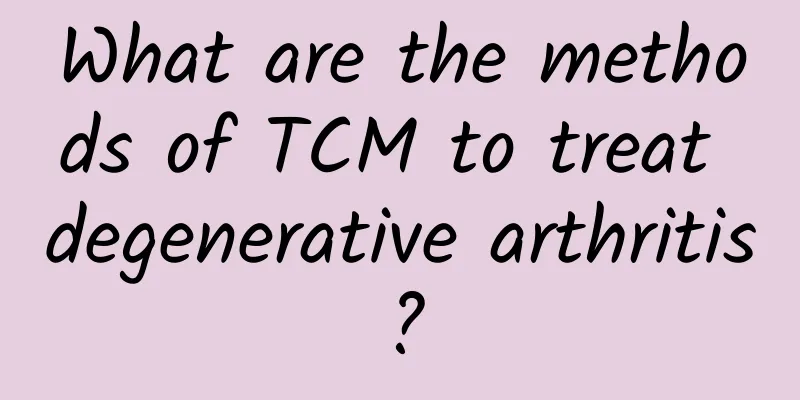Why do I feel hungry and bloated?

|
If you have a bloated stomach, it is probably caused by insufficient gastric motility. However, if you are still hungry, it is best to eat small meals frequently and not eat too much at each time. Eat less spicy food and do not eat too cold or cool food. Smoke and drink less and do not stay up late. Develop good living and eating habits. If the symptoms cannot be relieved, you can massage your stomach or seek medical attention. The latest statistics show that the prevalence of gastrointestinal motility disorders in my country is 10-30%, accounting for about 50% of the number of outpatient visits to the gastroenterology department. However, many patients lack awareness of gastric hypomotility, which leads to excessive examination and treatment. Gastric hypomotility refers to the contraction power of the stomach muscles, including the strength and frequency of gastrointestinal muscle contractions. In the past, doctors believed that functional dyspepsia was related to the amount of gastric acid secretion, but current research results show that it is actually caused by gastrointestinal "fatigue", that is, insufficient gastric motility. Gastric hypomotility mainly manifests in the following two symptoms: Symptoms of gastric hypomotility One of the symptoms is upper abdominal distension and discomfort, often accompanied by indigestion symptoms such as belching, loss of appetite, heartburn, acid reflux and pain behind the sternum. The second symptom is often accompanied by neurological symptoms such as insomnia, irritability, anxiety, depression, dizziness, and headache. People who experience these two symptoms go to the hospital for check-ups, and no ulcers, tumors, stones or other lesions are found. Some people also have gastroscopy, and the results are also mild gastritis, or even completely normal. This is functional dyspepsia, also known as gastric hypomotility. What causes gastric hypomotility? There are mainly four points: 1. Gastric secretory dysfunction: There are two types of cells with secretory function in the human stomach wall, one secretes digestive enzymes and the other secretes gastric acid. When the function of these cells declines, the secretion of digestive enzymes and gastric acid also decreases, which reflexively inhibits the contraction and peristalsis of the stomach muscles, resulting in gastric motility disorders. 2. Mental and emotional changes: Mental tension and sadness can disrupt gastric function and affect sympathetic nerve transmission, resulting in slow gastric muscle contraction frequency. Food in the stomach cannot be discharged into the intestines in time, resulting in food and gas retention in the stomach, causing abdominal distension, belching, nausea and many other symptoms. 3. Improper eating: Overeating and excessive eating will cause the stomach to be overloaded, the stomach muscles to be insufficiently powered, the stomach cannot be emptied on time, and too much food accumulates in the stomach, which will lead to insufficient gastric motility. 4. Bad living habits: Excessive smoking can relax the pyloric sphincter and cause bile reflux; excessive drinking can also damage the gastric mucosa and cause gastric motility deficiency. How to treat insufficient gastric motility? 1. Exercise more: When insufficient gastric motility causes bloating, you can do simple relaxing exercises, such as squatting down, hugging your legs with your hands, and bringing your thighs close to your stomach, which can help your stomach and intestines to relieve bloating. In addition, exercise half an hour after a meal to facilitate digestion of food. 2. Eat sweet potatoes: Sweet potatoes contain a lot of cellulose, and the glucosinolates they contain have the same effect as dietary fiber. They can strongly stimulate gastrointestinal motility, enhance motility, promote defecation, and thus relieve symptoms such as bloating and stomach pain. 3. Develop good living habits and lifestyles, have regular daily life and diet, combine work and rest, and keep a good mood. To prevent constipation, eat more foods high in crude fiber to stimulate gastrointestinal motility. 4. Do not lie down immediately after a meal and avoid eating before going to bed. 5. Drug treatment: The third generation of this type of drug has been launched. Generally speaking, gastrokinetic drugs cause fewer adverse reactions and have a wider range of applications, but not everyone is suitable for this type of drug. In addition, this type of drug cannot be used in combination with digestive tract drugs such as anticholine drugs and antacids, and care should be taken when taking the drug. |
<<: What should I do if my stomach bloates after eating chestnuts?
>>: Can women with hepatitis B get pregnant?
Recommend
How to apply eyeshadow for double eyelids
Applying eye shadow on double eyelids is a common...
What is a mental disorder?
Mental disorder is a kind of mental illness. Pati...
What is sand dermatitis, what are the symptoms and how to treat it?
Many playgrounds have special sand piles for chil...
What is calf muscle atrophy?
Muscle atrophy in the calf area is a great threat...
Cough variant asthma treatment
Many people may not know what cough variant asthm...
Symptoms of pregnancy while breastfeeding?
Many women have sex during breastfeeding without ...
What are the symptoms of Qi deficiency cold? How should you take care of yourself when you have a cold?
Cold is a common infectious disease in life. It a...
The simplest treatment for rheumatoid arthritis
Rheumatoid arthritis is urticaria. Many people do...
Scars and scabs keep forming
When a wound is large enough, it is not uncommon ...
Don't be afraid of having a thorn monkey on your body, just choose a small folk remedy to solve it
In life, people call warts warts, which are small...
Is it reliable to treat stomach problems by soaking mugwort in water?
Mugwort is a Chinese herbal medicine in tradition...
What is the cause of indirect strabismus?
Strabismus is a very common phenomenon in our liv...
The efficacy and function of Yiqi Buzhong Pills
Buzhong Yiqi Pills are the most common Chinese me...
How to treat tooth desensitization
Tooth allergy is caused by adverse external stimu...
Add some ingredients to your pillow: 11 kinds of Chinese herbal pillows to treat diseases and soothe the nerves
Traditional Chinese medicine believes that the hu...









